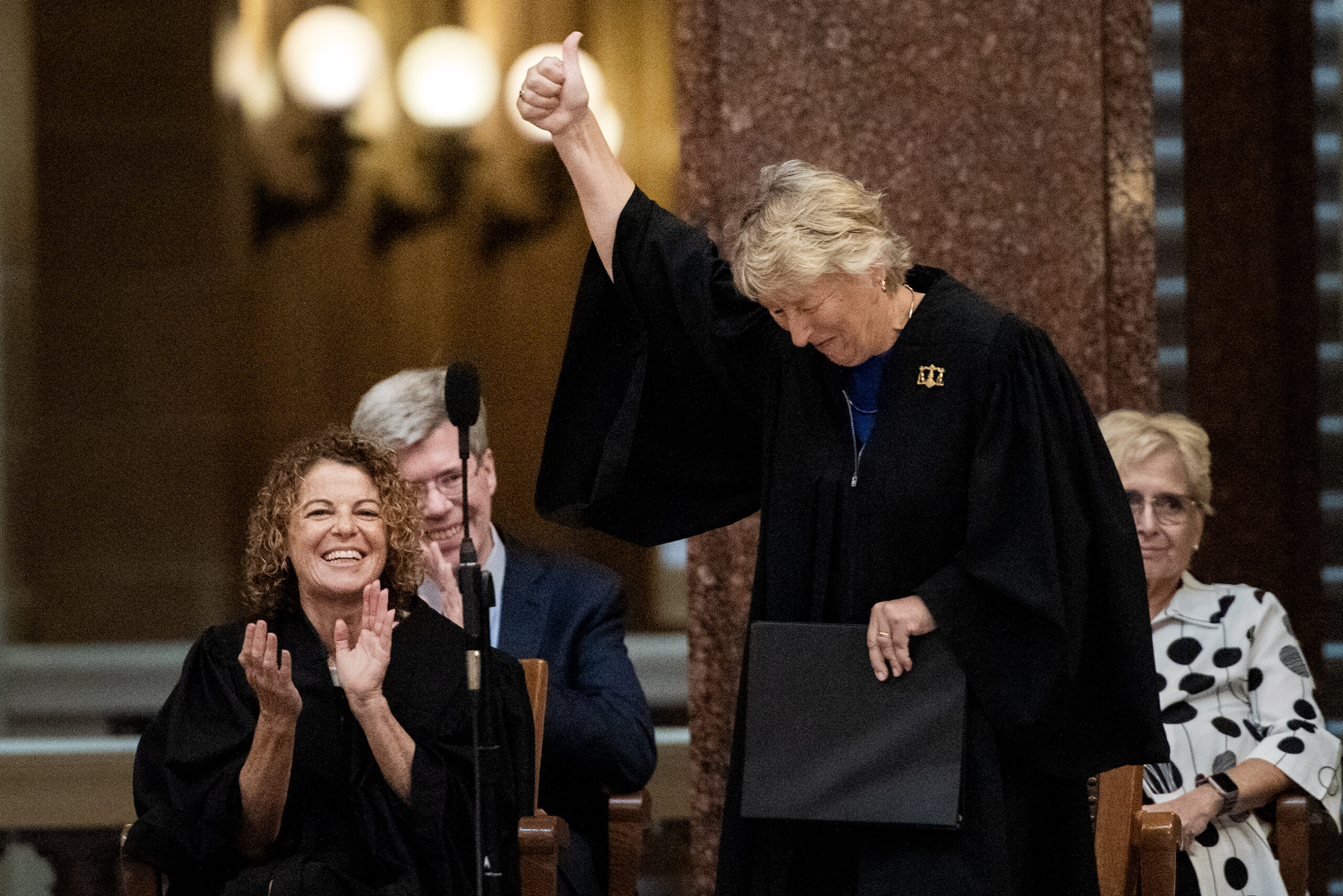The Wisconsin Bar Association is backing a constitutional amendment to establish a single 16-year term for state Supreme Court justices.
The bar spent two years drafting what members said is a simple and elegant way to bring stability to the court and end the rancorous infighting that has plagued it for more than a decade.
John Orton led the committee that drafted the amendment. He said a single, 16-year term will prevent justices from acting like politicians while they are sitting on the bench.
Stay informed on the latest news
Sign up for WPR’s email newsletter.
“It’s gonna get rid of these re-election campaigns that are a nightmare, and it’s going to enhance collegiality because we’re not going to have justices who are supposed to be working together devoted solely to the law trying to get each other booted off the court in the next election that they have to face,” said Orton.
If approved the amendment wouldn’t affect any of the sitting justices or the three candidates currently running to fill a vacant seat. All of them would be able to run one more time for a 16-year term.
State Rep. Dana Wachs, D-Eau Claire, said he believes the amendment can win bipartisan support.
But, it’s likely to face opposition from those who oppose term limits of any kind because they see them as restricting the democratic process.
Thomas Shriner, one of the authors of the amendment, said it’s not an effort to limit the right of voters to elect a justice because it focuses only on re-election. He said the goal is to prevent justices from being pressured to rule one way or another on a case simply to remain on the bench. Instead, it offers justices a chance to run a vigorous election campaign to win their one term and the opportunity to have 16 years of influence on how state laws are enforced and interpreted. He said 16 years was chosen was because that’s the average number of years a Wisconsin Supreme Court justice has served since the court was first established.
Wisconsin Public Radio, © Copyright 2024, Board of Regents of the University of Wisconsin System and Wisconsin Educational Communications Board.






